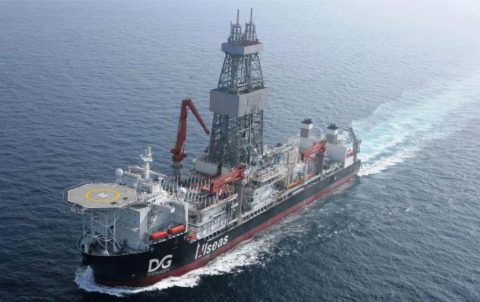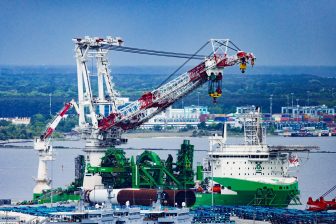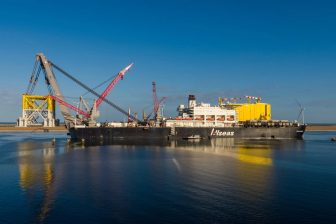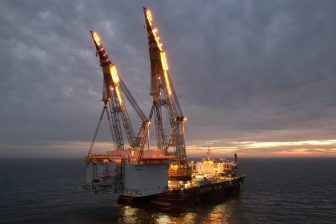
Allseas ventures into deepsea mining
PRESS RELEASE – Allseas has acquired the former ultra-deepwater drillship Vitoria 10000 for conversion into a polymetallic nodule collection vessel. The vessel will be used to collect nodules that contain nickel, manganese, copper and cobalt from the seabed. These metals can be used to manufacture electric vehicle batteries and renewable energy technologies, the company states.
“The green transition is going to require hundreds of millions of tonnes of nickel, copper and cobalt, and our research shows that ocean polymetallic nodules could provide society with these critical minerals at a fraction of the environmental and social impacts associated with land-based extraction”, said CEO Gerard Barron of DeepGreen Metals, Allseas’ partner in this new project.
To collect these metals from the seabed, Allseas is currently developing a deep-sea mineral collection system to recover these polymetallic nodules from the ocean floor and transfer them to the surface for transportation to shore.
The newly acquired ship will be converted to accommodate this pilot nodule collection system. As a former drillship, her configuration is well-suited for modifications that will enable the deployment at sea of a 4.5 kilometre-long riser currently being developed by Allseas, the company states. After the nodules have been collected and taken to shore they will be processed using a metallurgical flowsheet developed by DeepGreen Metals.
“Allseas is excited to be involved in the exploration of the deep ocean for these important metals”, says Allseas founder Edward Heerema. “Deep-sea polymetallic nodule collection represents a new frontier and a new exciting chapter in Allseas’ history. With our offshore expertise and innovative capability, we can develop creative technical solutions for this new industry.”
Allseas expects the vessel to be operational for pilot nodule collection tests by mid-2021.
You just read one of our premium articles free of charge
Register now to keep reading premium articles.



